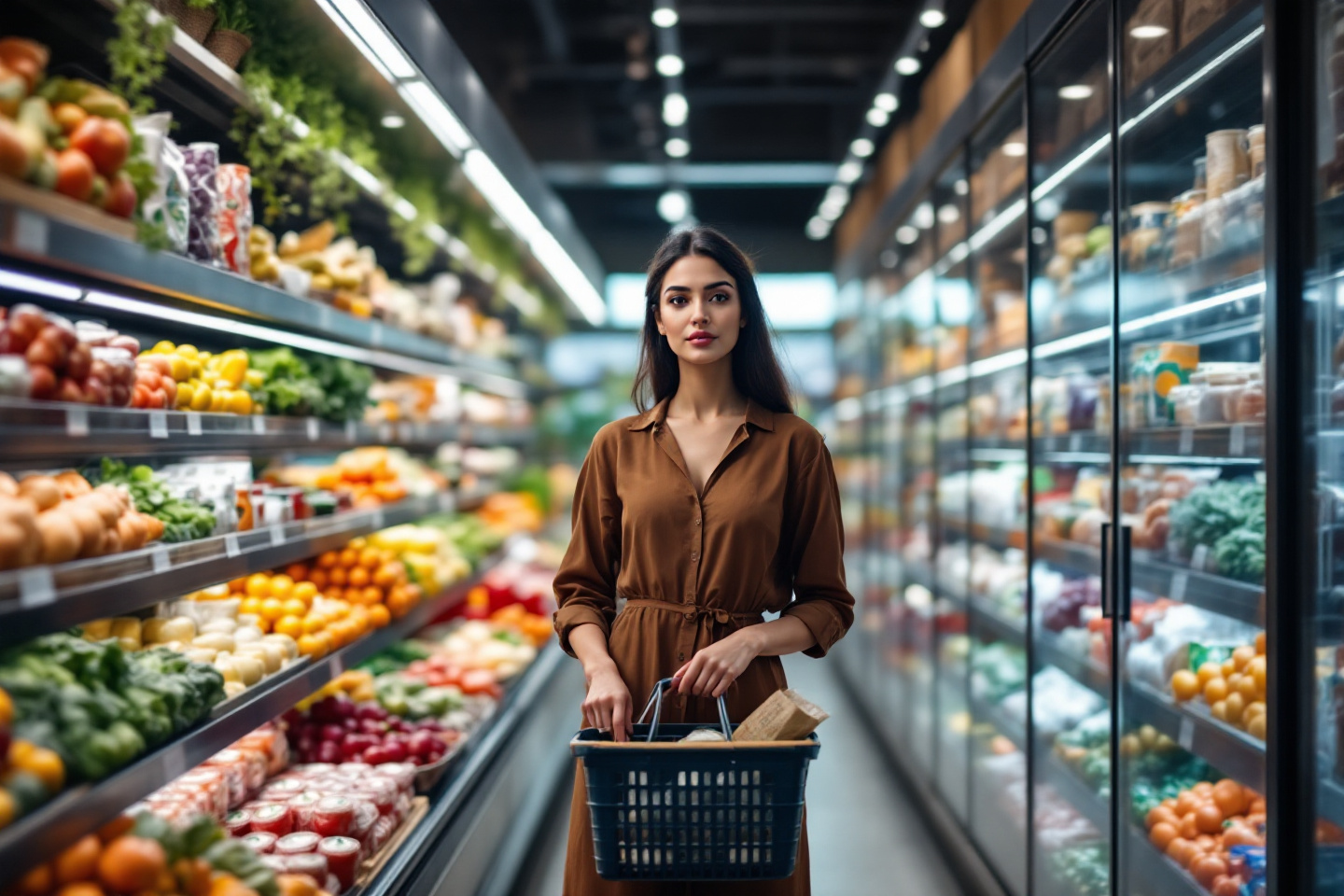Imagine walking into a grocery store, staring at shelves overflowing with food, and yet, feeling utterly confused about what to eat. Should you go organic? Is industrially farmed food bad? What about processed food?
We like to think we’re in control of what we eat, but the reality is far more complex. The food we consume carries hidden stories—of how it was grown, who profited from it, and how it impacts our health and the environment.
From industrial farming to organic produce, the choices we make at mealtime go far beyond our taste buds. They shape economies, ecosystems, and even our personal well-being.
“Every bite we take is a vote—for the kind of world we want to live in.”
The Hidden Cost of Convenience
Step into any supermarket, and you’ll find an illusion of abundance. But behind the neatly packaged products lies an industrial food system designed for efficiency, not nourishment.
- Corn, the Invisible Giant: You may not realize it, but corn dominates our food system. It’s in our sodas, processed snacks, and even in the meat we eat. Corn has become a cheap, overproduced ingredient that sneaks into nearly everything.
- Factory Farming and Its Hidden Costs: Industrial farms prioritize mass production over sustainability. Animals are raised in confined spaces, fed unnatural diets, and treated as commodities rather than living beings. The result? Cheaper meat but at a high cost to animal welfare, human health, and the environment.
- The Illusion of Choice: Think you have a variety of options? Think again. A handful of corporations control the majority of the food industry, limiting real diversity while giving the appearance of endless choices.
We have prioritized convenience and affordability, but at what cost? The food system that feeds us is also exploiting land, labor, and health—all while keeping us unaware of its true impact.
“Affordable food often comes at a hidden cost—one paid by the environment, workers, or our health.”
Do Labels Mean Anything?
In reaction to industrial farming, organic and sustainable food movements have grown, but are they really the answer?
- Organic: Beyond the Hype: The word ‘organic’ often brings to mind images of small farms and pesticide-free crops. While organic farming avoids synthetic chemicals, large-scale organic operations often mimic industrial farms in structure, relying on monocultures and long supply chains.
- Local Food: The Power of Proximity: Local food movements advocate for shorter supply chains, fresher produce, and supporting small farmers. When food travels less, it’s not just healthier—it also strengthens communities and reduces environmental impact.
- Sustainability: The Bigger Picture: True sustainability goes beyond just organic labels. It means soil health, biodiversity, ethical treatment of workers, and farming methods that don’t drain resources for future generations.
The real question isn’t just organic or not—it’s about whether our food system is regenerative or depleting, mindful or exploitative.
“Good food isn’t just about what’s on your plate—it’s about how it got there.”
Tricked by Taste
Take a look at any processed food, and you’ll find a recipe engineered not for nutrition, but for addiction. Food companies design products to maximize cravings, ensuring repeat customers.
- The Science of Cravings: Processed food is carefully crafted with the perfect balance of salt, sugar, and fat—hitting our brain’s pleasure centers while offering little real nourishment.
- The Hidden Ingredients: Beyond the nutrition label, processed foods contain preservatives, artificial flavors, and stabilizers—ingredients meant to extend shelf life, not improve health.
- The Cycle of Overconsumption: Highly processed foods leave us unsatisfied, making us eat more while lacking essential nutrients. It’s a cycle of excess calories but poor nourishment.
The processed food industry thrives on one thing: our addiction to convenience. But convenience often comes at the cost of our health.
“What we call ‘food’ today would be unrecognizable to past generations.”
The True Cost of What We Eat
Every time we eat, we make choices—not just about taste, but about the world we are shaping. Our food choices impact:
- Our health: Processed foods and industrially farmed meat contribute to chronic illnesses, from obesity to heart disease.
- The environment: Industrial agriculture depletes soil, pollutes water, and contributes to climate change.
- Local economies: Supporting small farmers and local markets keeps money within communities rather than funneling it into giant agribusinesses.
The way forward isn’t about rigid diets or fear-based eating—it’s about awareness. It’s about knowing where food comes from, who profits from it, and what systems we are supporting with our choices.
“Every meal shapes more than our bodies—it fuels a system that either sustains or exploits us.”
Making Better Choices
If we want to eat in a way that aligns with our values, health, and the planet, here’s where we start:
- Eat real food: Prioritize whole, minimally processed foods that nourish rather than just fill.
- Know your sources: Shop at farmers’ markets, support local growers, and learn about where your food comes from.
- Diversify your diet: Move away from monocultures by eating a variety of grains, vegetables, and proteins.
- Rely less on packaged food: The more control you have over your meals, the less control corporations have over your diet.
- Be mindful, not extreme: It’s not about perfection—it’s about making better choices when possible.
“Change isn’t about following rules—it’s about redefining our relationship with food.”
Final Thoughts
Food is more than fuel—it’s a reflection of our values, our health, and the systems we choose to support. Every bite we take influences something bigger than ourselves.
We don’t need to overhaul our diets overnight, but awareness is the first step. By asking the right questions and making small shifts, we can break free from an industrial food system that prioritizes profit over well-being.
In the end, eating well isn’t just about personal health—it’s about shaping a future where food nourishes not just individuals, but entire ecosystems.
“We don’t just eat—we shape the system that feeds us. The real question is, are we shaping it wisely?”



